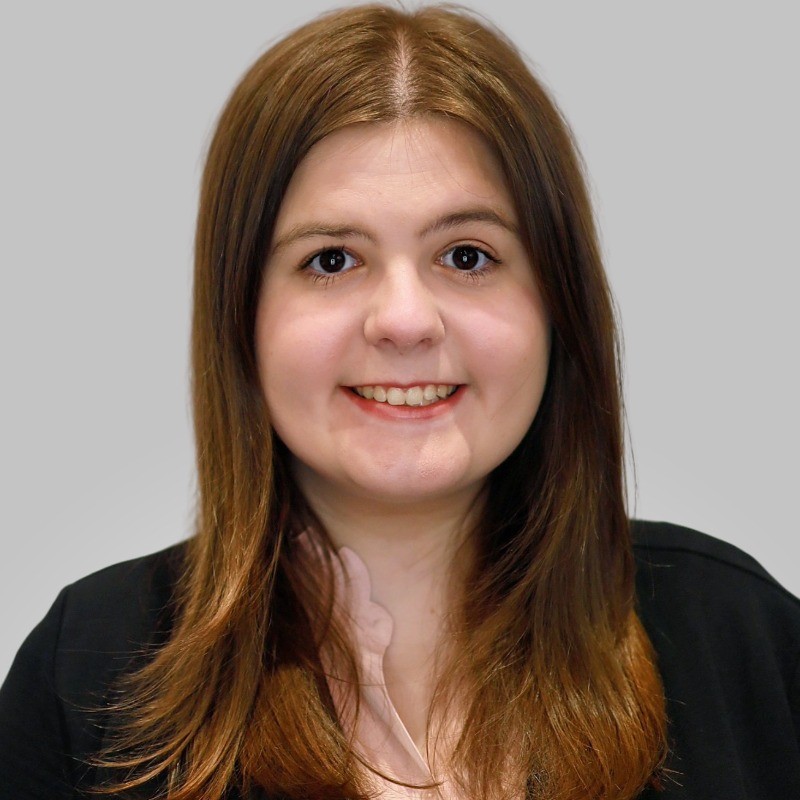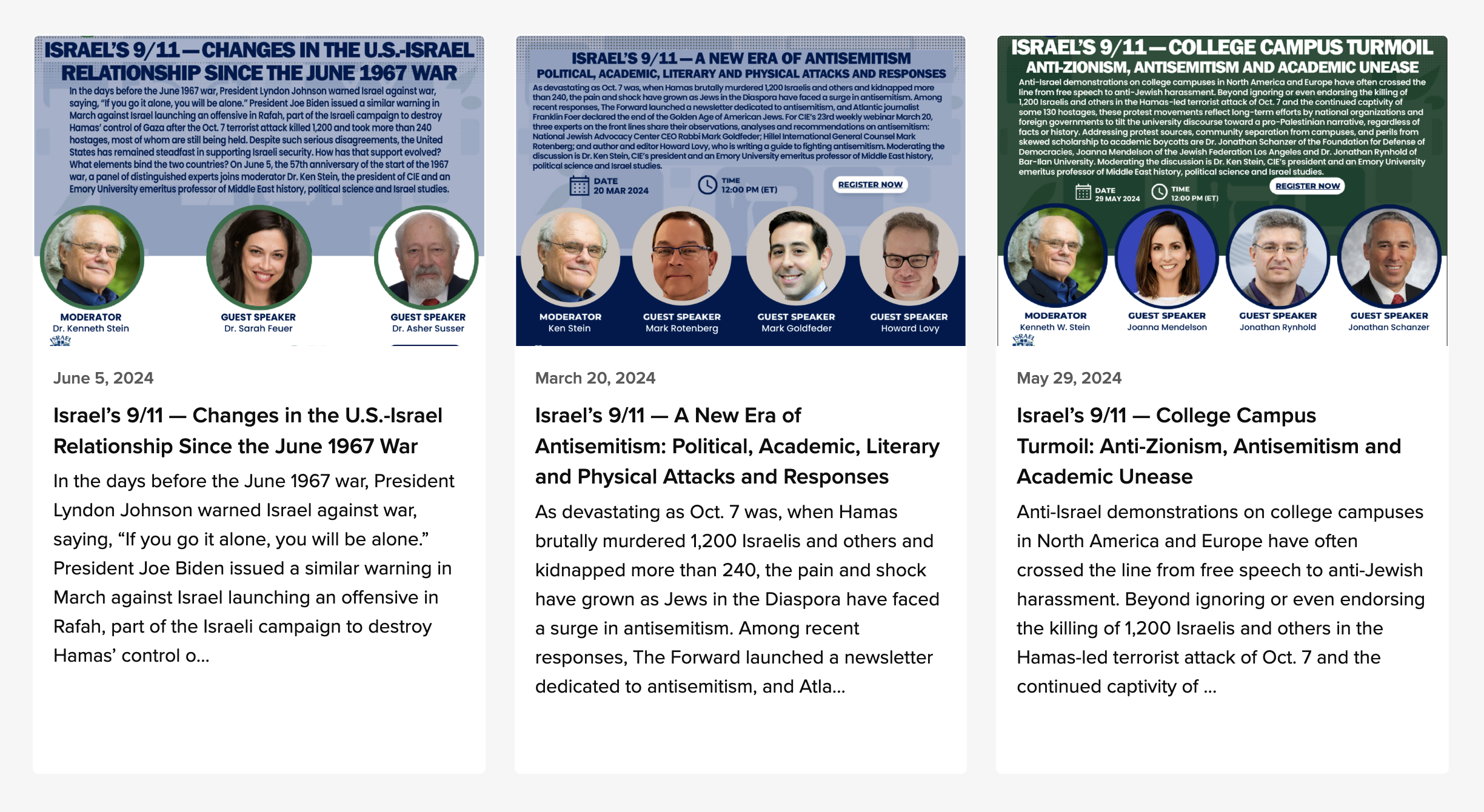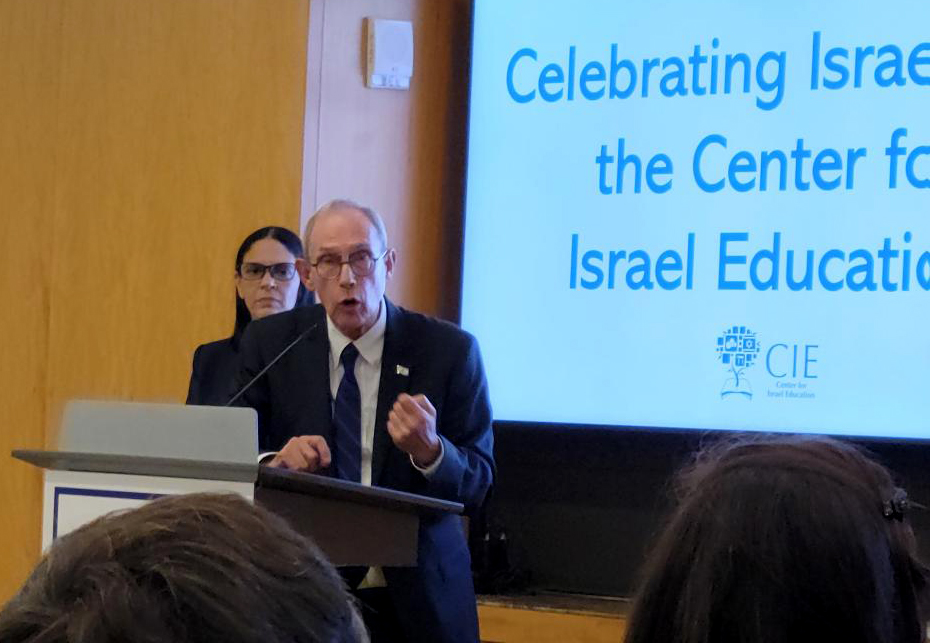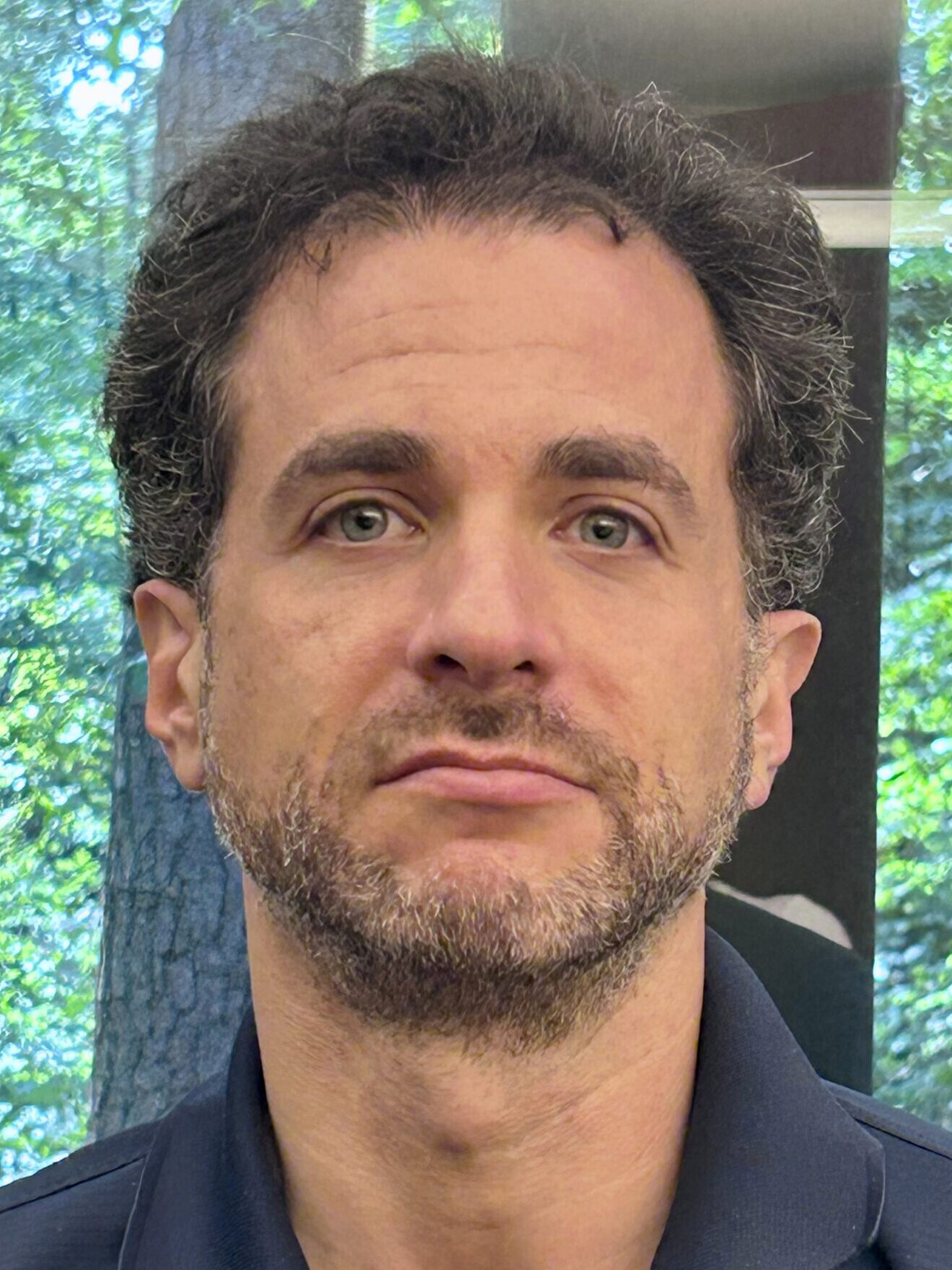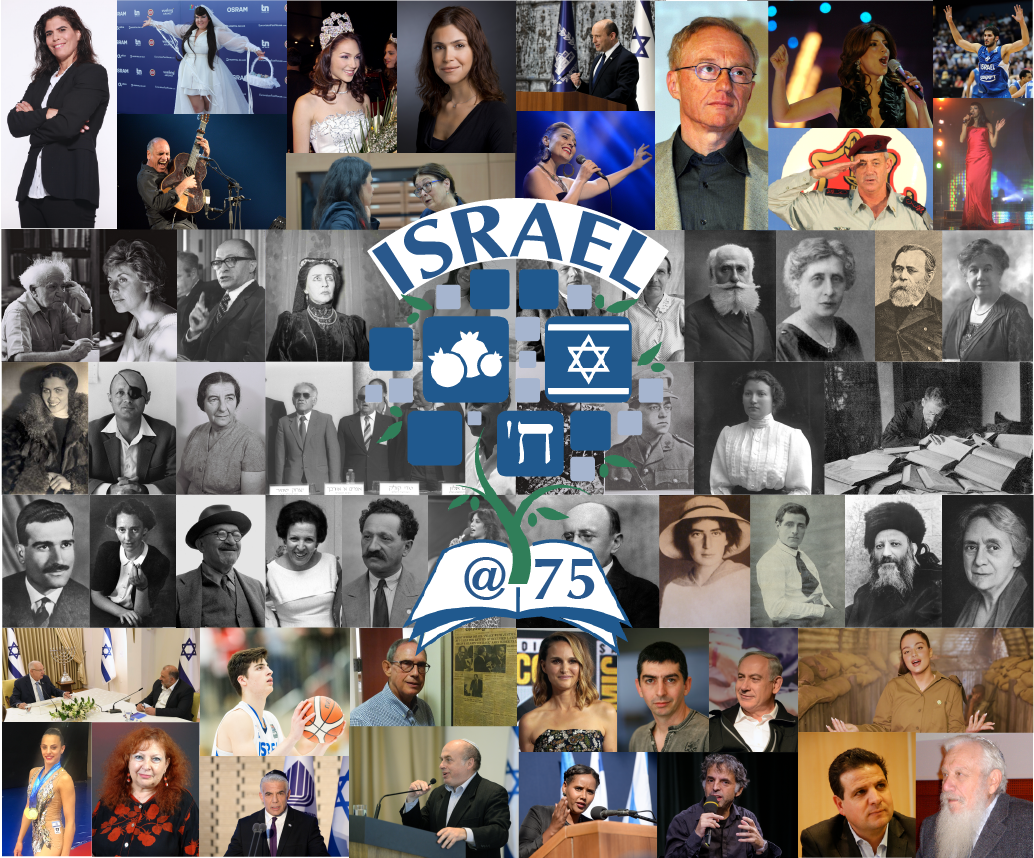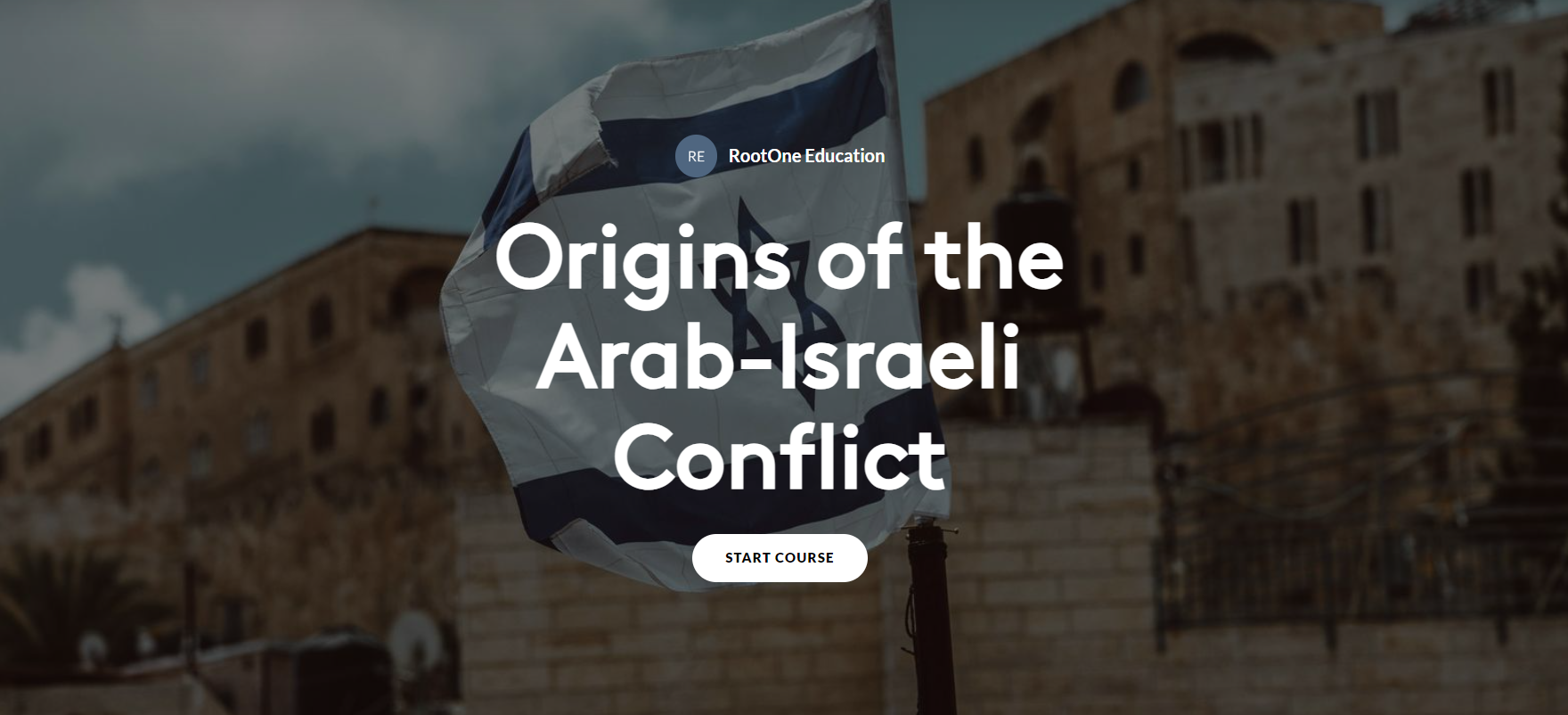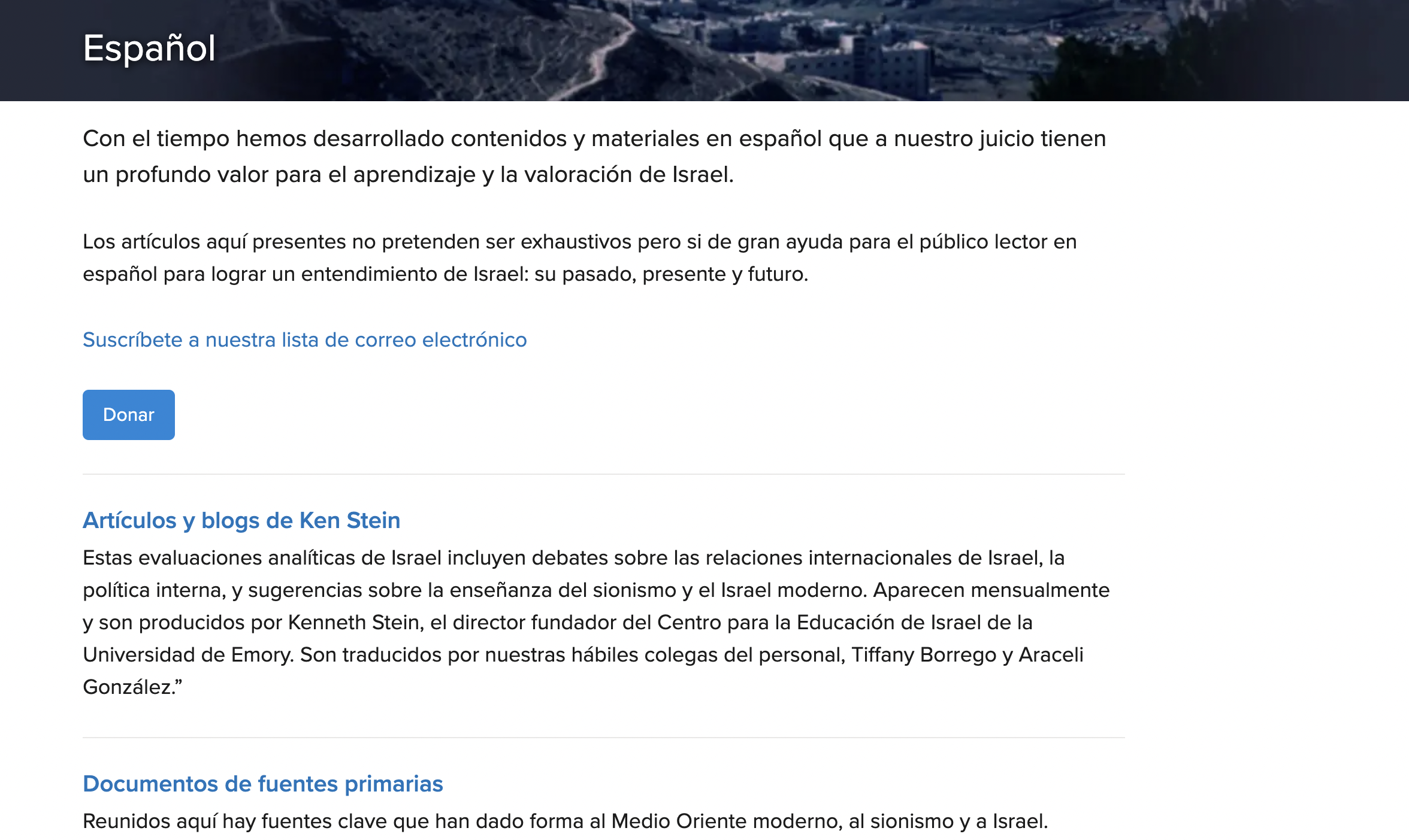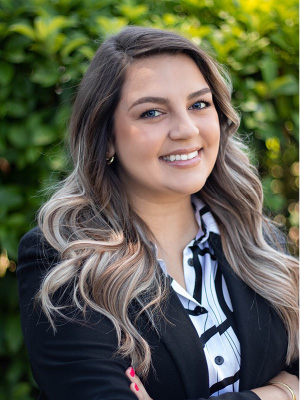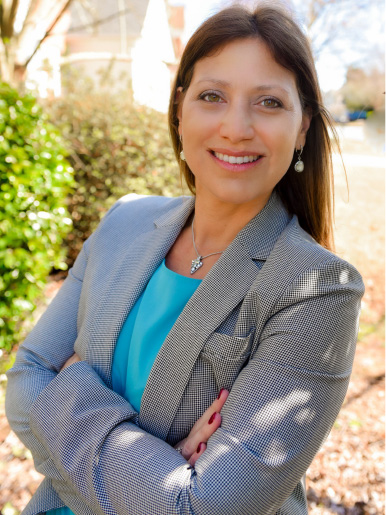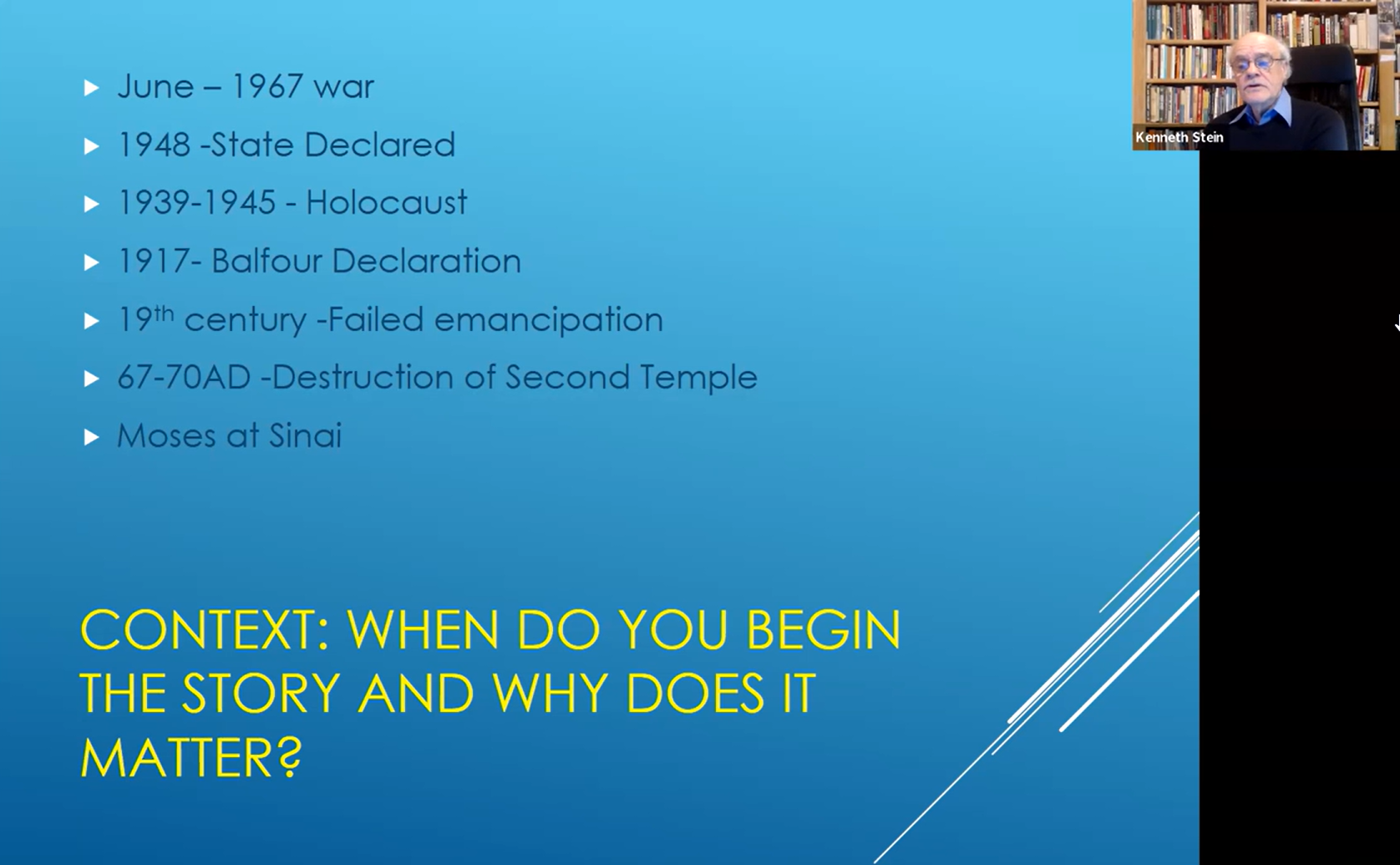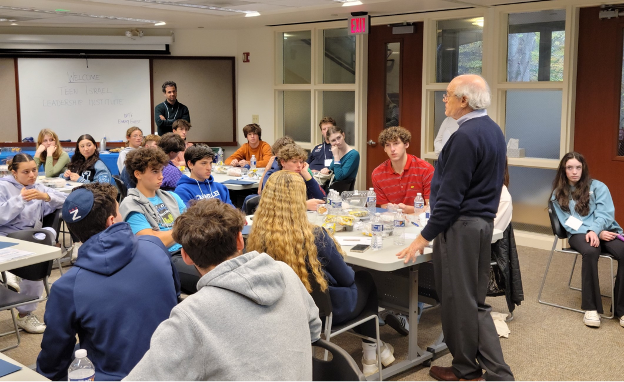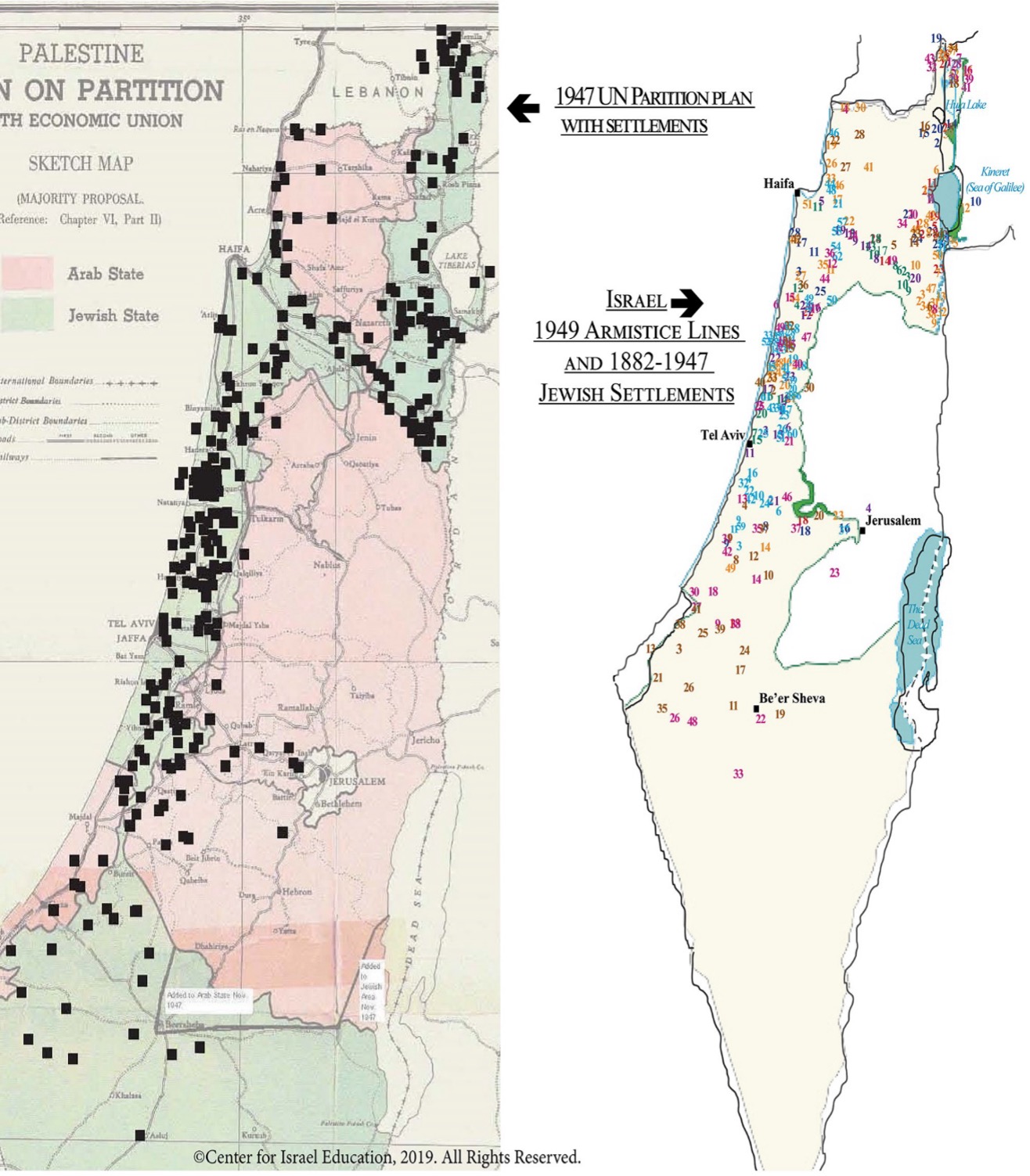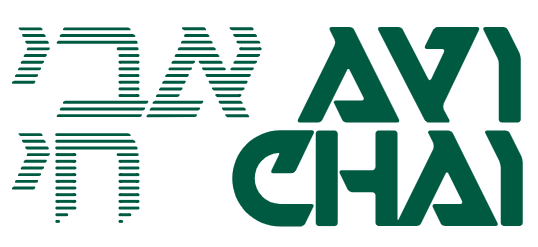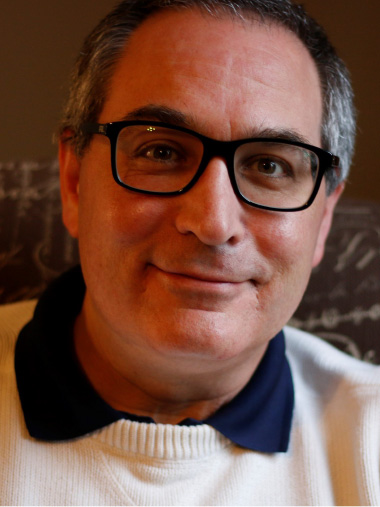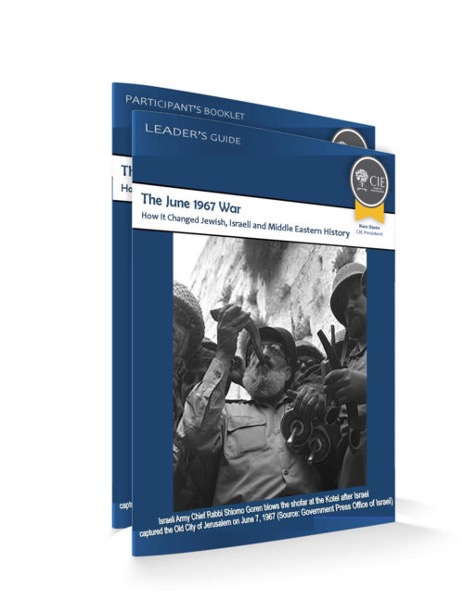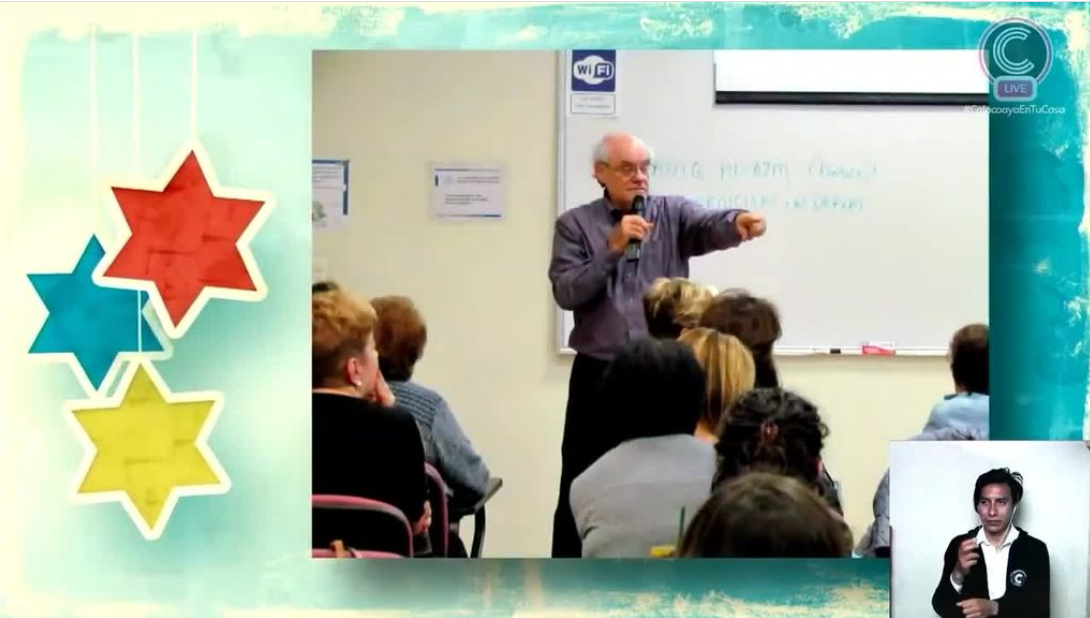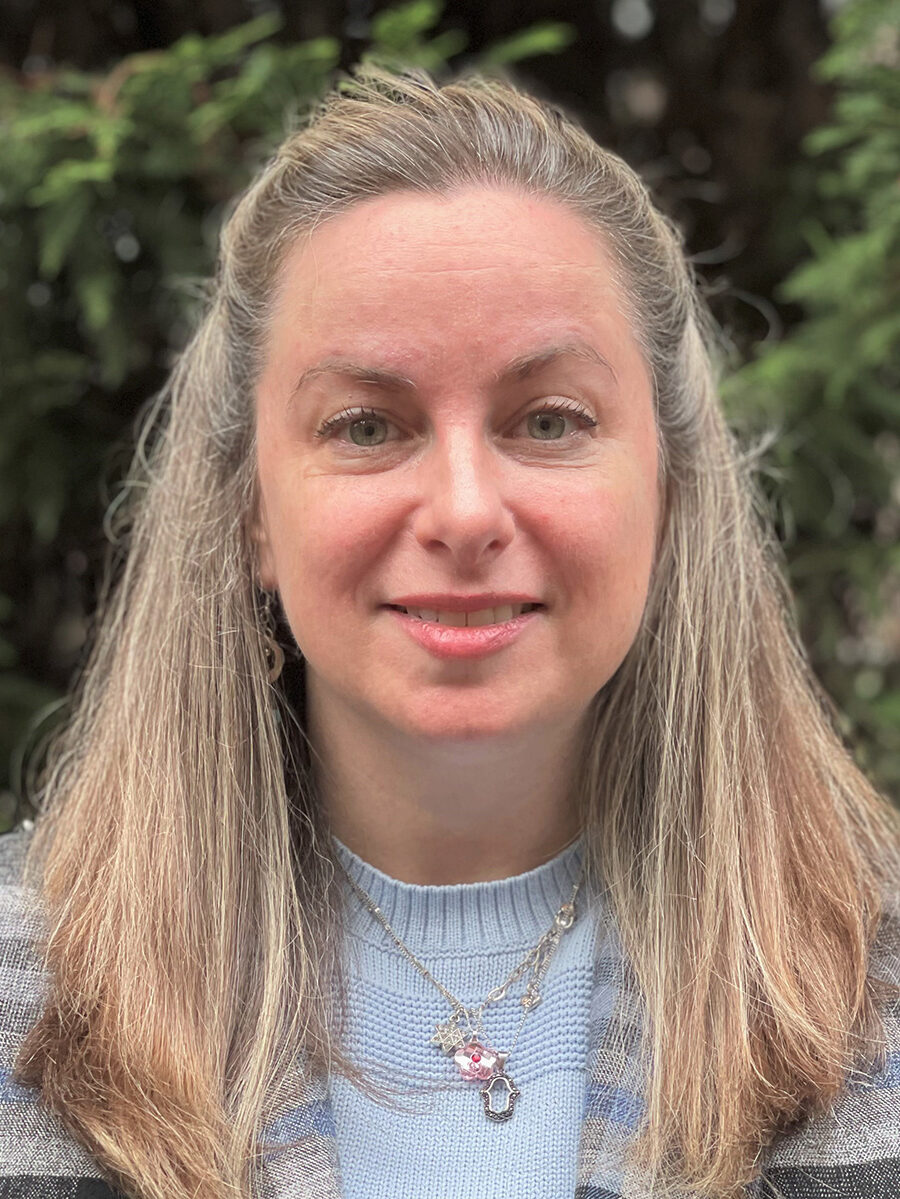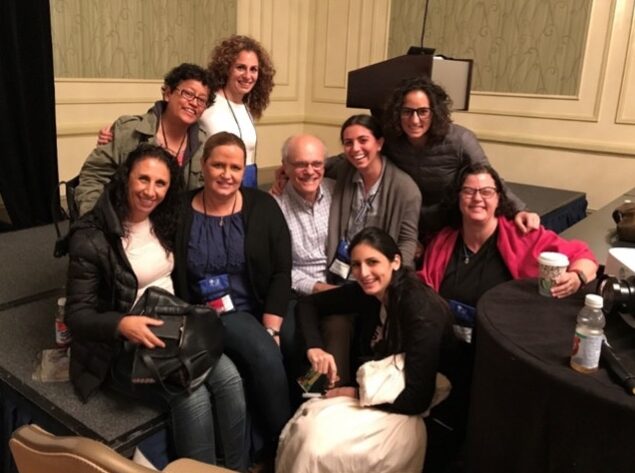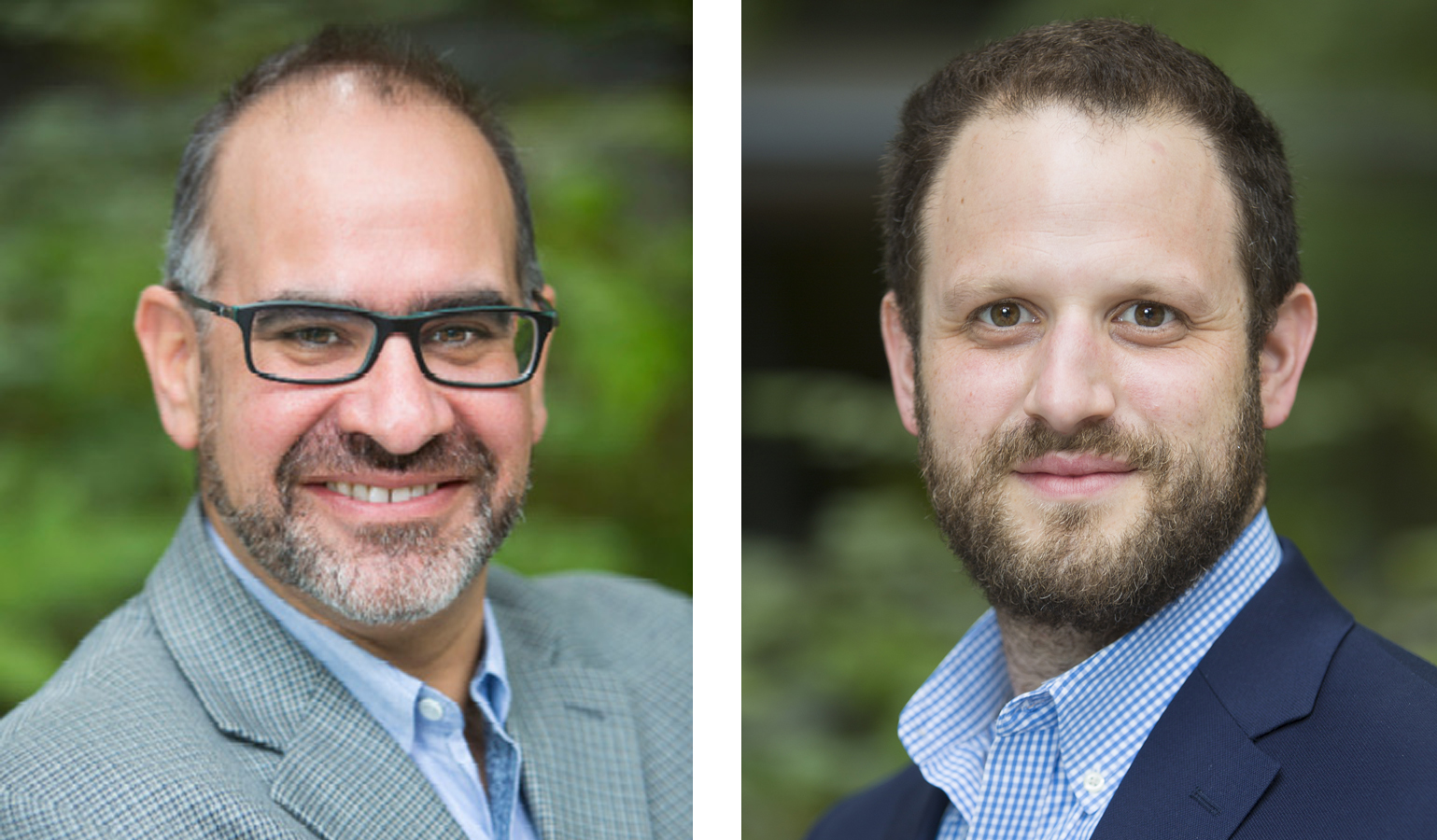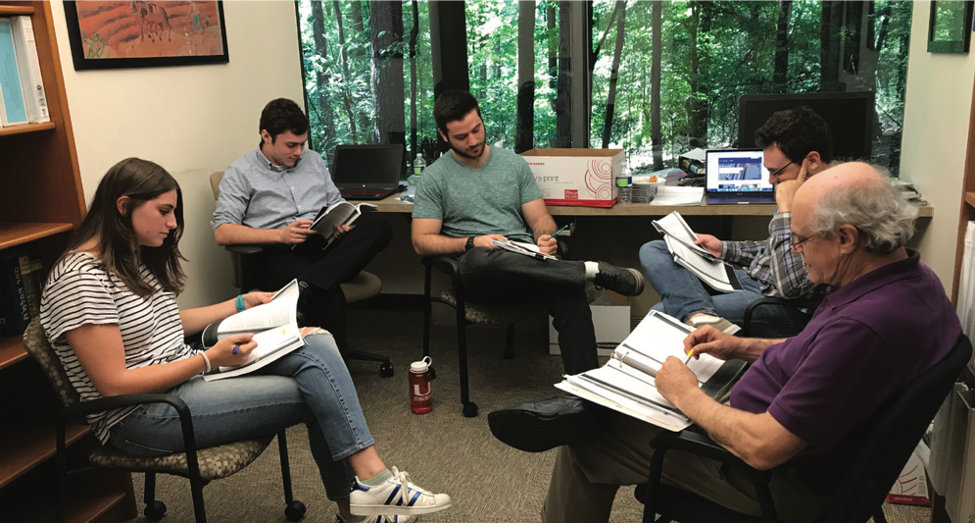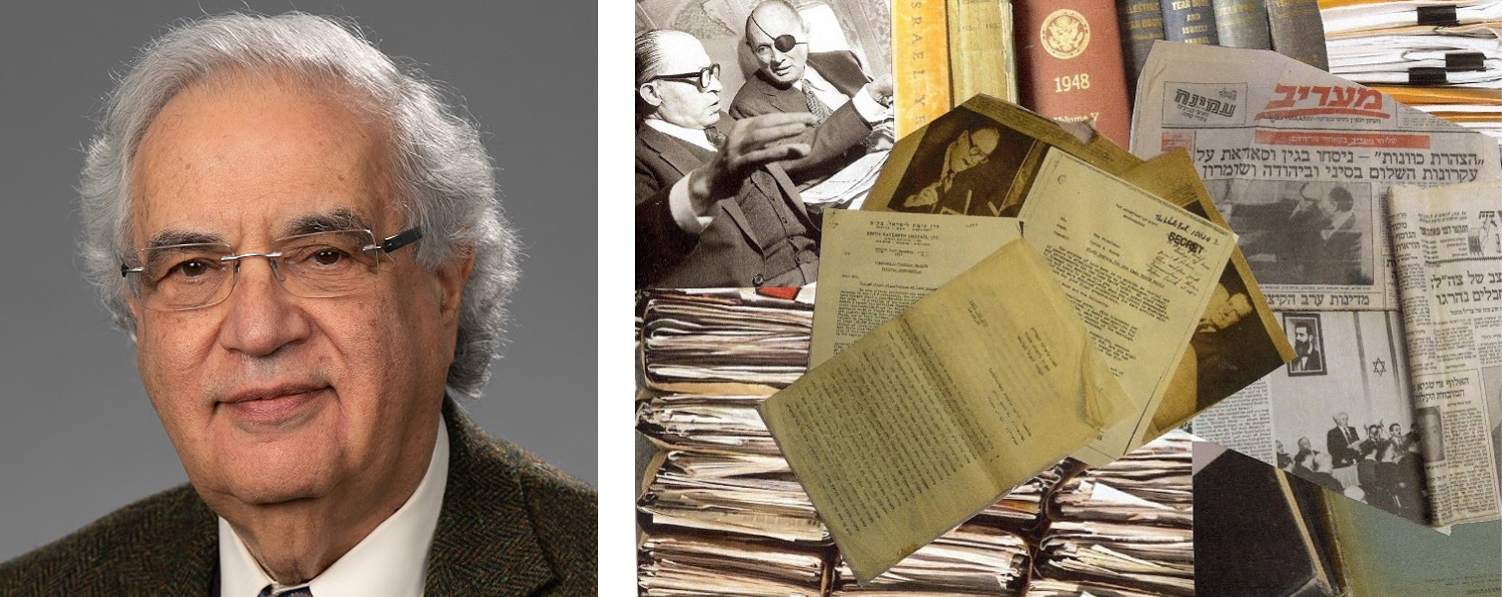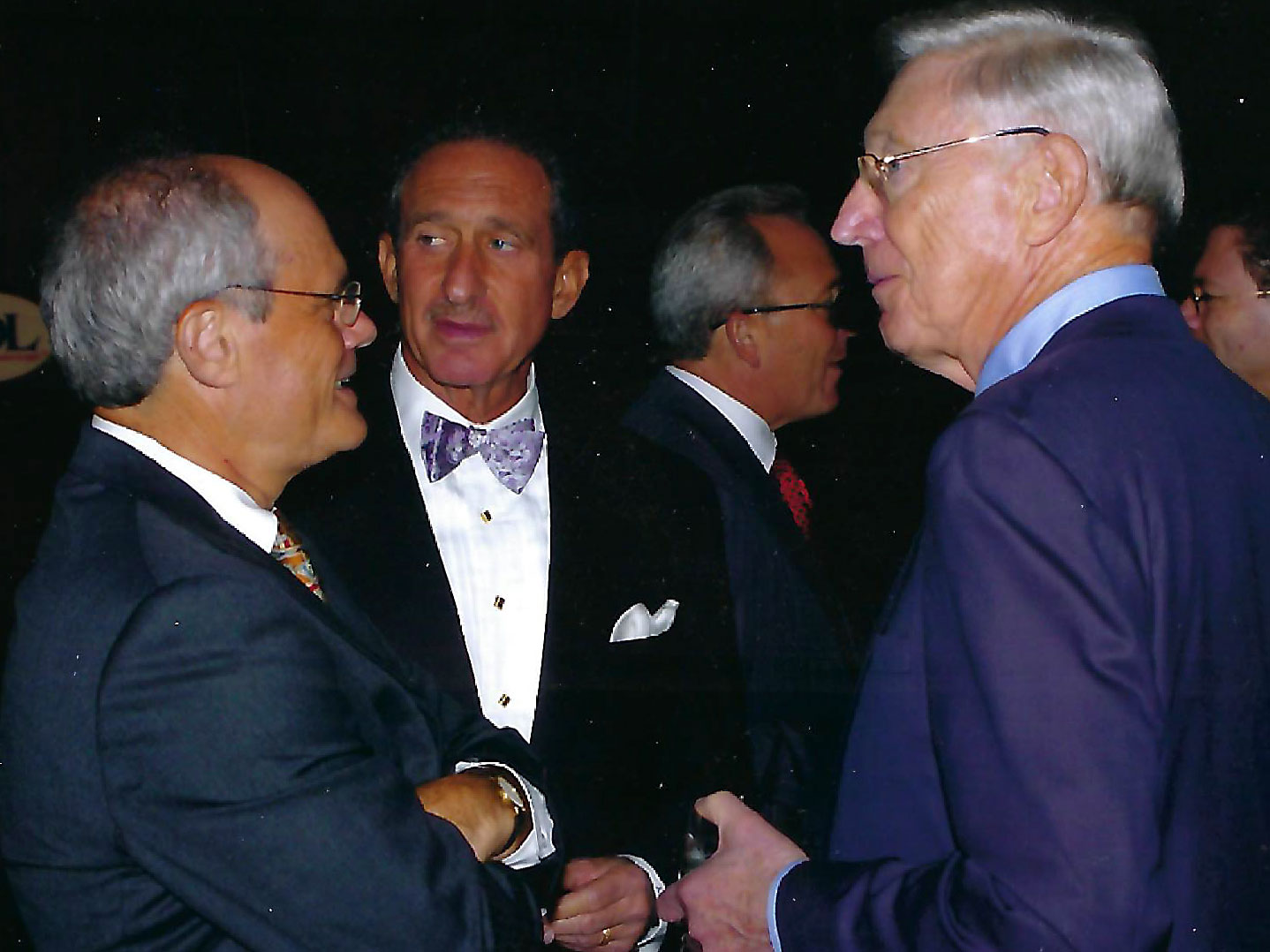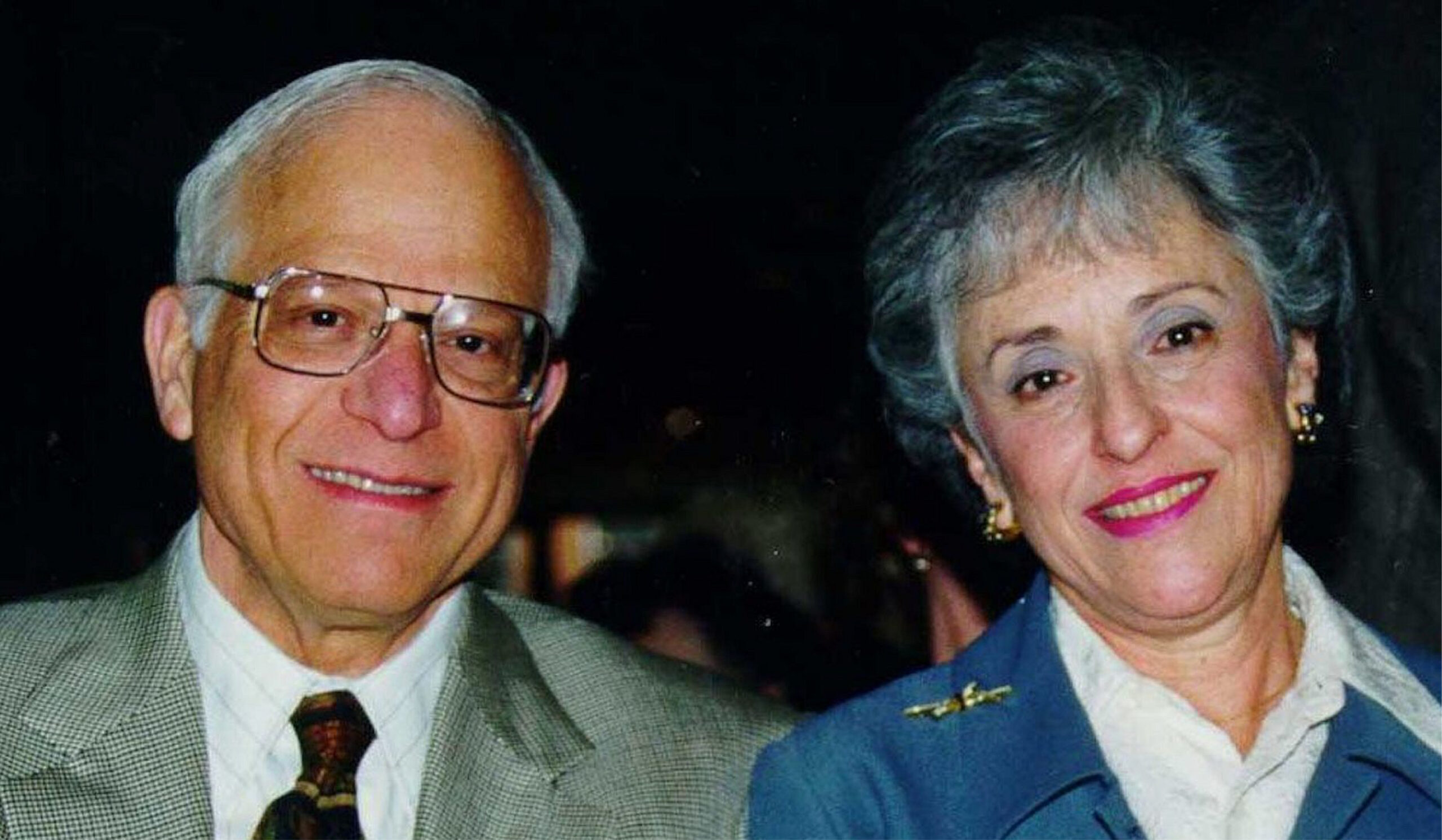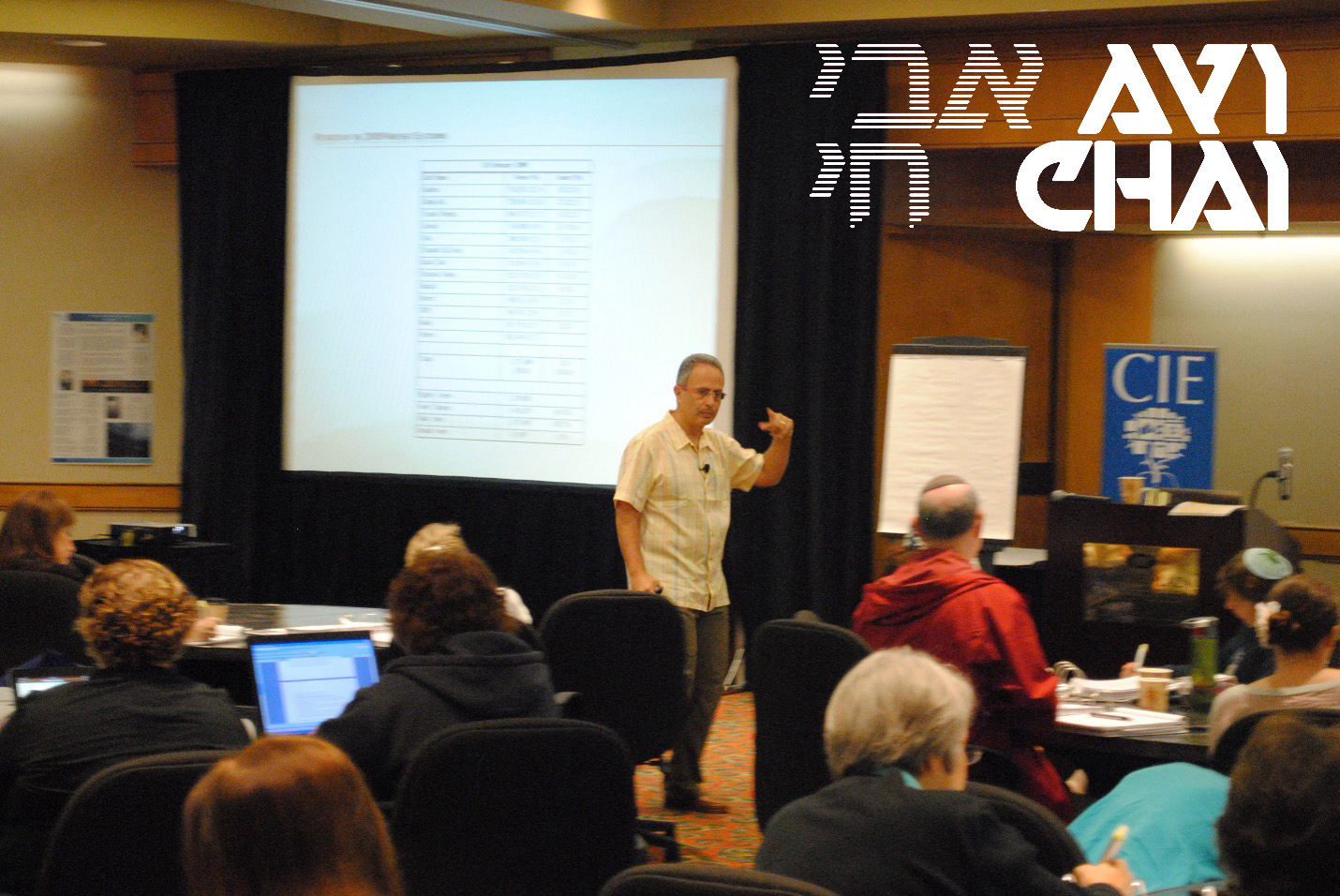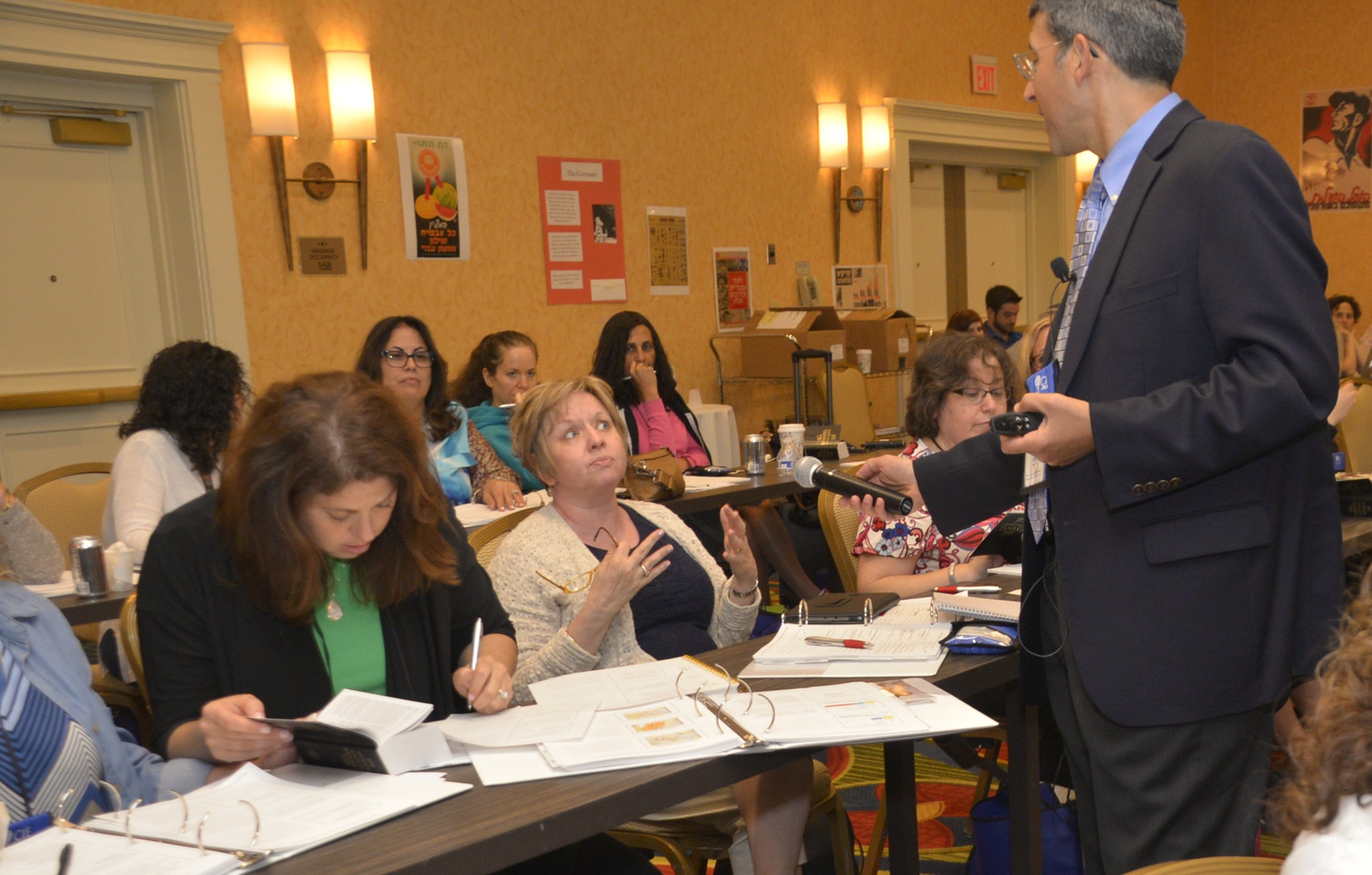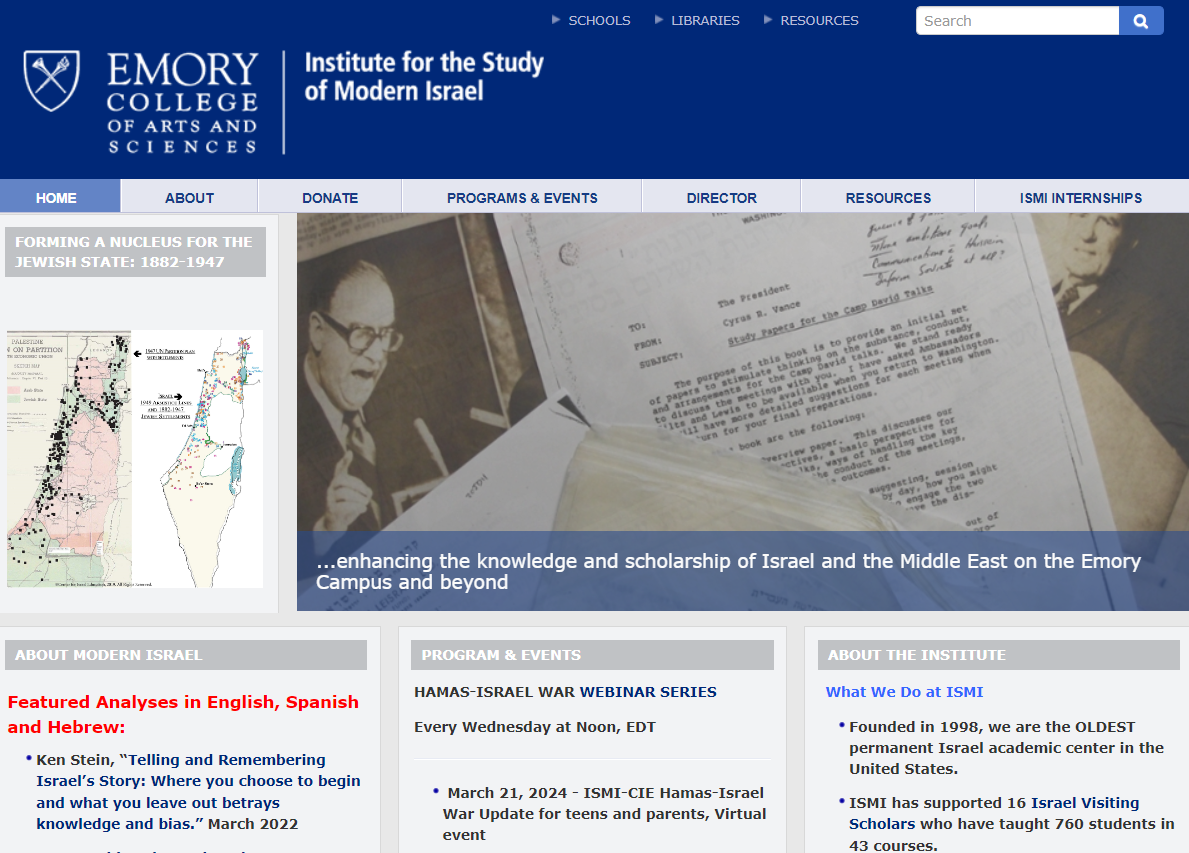The Center for Israel Education (CIE), founded in Atlanta under the direction of Dr. Kenneth W. Stein, is a 501(c)(3) non-profit and tax-exempt entity established in 2008. The CIE evolved out of the Emory Institute for the Study of Modern Israel (ISMI), which was established in 1998. ISMI was the first permanent academic platform, center or institute for the study of modern Israel in the United States and focused on enhancing Israel learning on the Emory campus with visiting scholars, conferences with local Jewish organizations, and regular lectures. On January 1, 2025, ISMI was closed for lack of a person to sustain its work after Ken’s retirement that same day.
ISMI and CIE’s work evolved from 1998 forward, when two middle school teachers from then Greenfield Hebrew Academy (now Atlanta Jewish Academy), Sally Levine and Tziona Zalkow, asked Ken to guide them in building a syllabus for a seventh-grade class on Zionist history and modern Israel. Using syllabi and source materials from his Emory courses, together the trio successfully designed a semester course for graduating seventh graders. The following fall, understanding the wider need, Stein offered a three-hour professional workshop for local Atlanta middle and high school teachers where shared content for teaching about Israel unfolded. Some dozen teachers attended. Significant contribution to the pedagogy of the workshops was provided for five years by Abby Chill, of the Herzliya based American School in Israel.
Demand from Jewish educators across the country grew for more Israel learning, particularly after the outbreak of the second intifadah in September 2000 when colleges decided not to encourage students to learn in Israel due to lack of insurance coverages. ISMI’s Israel educator workshops were noticed by other communities in the country, where congregations and day schools asked for one day Israel enrichment professional workshops. In the early 2000s, larger and longer workshops at an Atlanta venue were held with initial funding came from the Reisman and Zedeck families. Beginning in 2004 and continuing for five more years, the Charles and Lynn Schusterman Foundation joined, providing funding as well. They too believed in the idea of enriching educators with Israel content and pedagogic tools via in one-day workshops on modern Israel that ISMI and later CIE conducted in different cities across North America. Workshops focused primarily on middle school and high school grades, before increasingly engaging pre-K and elementary school teachers as well.
By 2003, The Avi Chai Foundation of North America, under the leadership of Yossi Prager, initiated the underwriting of the annual Israel educator workshops which ISMI had been sponsoring, thanks to connection made by Emory Religion Professor Michael Berger. The Avi Chai Foundation’s leadership initially preferred its funds be directed to day schoolteachers, headmasters, and curriculum development, solely, but ultimately agreed to allow support for the one-week workshops to include learning for congregational and supplemental schoolteachers, camp counselors and JCC staffs, in addition to day school educators. The combined learning of teachers with different skills and educational settings proved to be enormously productive in shaping new pedagogic tools and methods for delivering content. Some 50-70 teachers and educators attended the ISMI/CIE workshops annually in person until the Covid epidemic hit, when they became virtual engagements
After September 2000, national Jewish organizations sincerely tried to take on the task of educating pre-collegiate Jewish youth about Israel, as a North American-centered alternative to experiencing and learning in and about Israel but found as we had at ISMI, that there was a shortage of educators and staff with academic experience in teaching modern Zionism and Israel. There was no shortage of educators who taught Jewish philosophy, Bible, Hebrew, the Shoah, but there were very few educators with classroom experience and sufficient knowledge of source materials relating to Israel’s modern history and political evolution. At the same time, there were several national Jewish educational organizations like JESNA and JEA which afforded teachers annual opportunities to learn content and pedagogies in many fields of Jewish study. But these too on the whole did not focus on learning about Israel-related context and content. JESNA, the Jewish Education Service in North America closed in June 2013. That along with the rapid decline of secular Hebrew high schools attached to Jewish communities and congregations left a huge void in Jewish educator preparation for substantive Israel learning.
From 2005-2011, Dr. Tal Grinfas-David from Portland, OR joined the ISMI staff and in 2017, CIE’s staff. Her dedication and drive broadened educator engagement. At the same time, she importantly implemented the use of innovative pedagogical and evaluative standards. The focus remained on Israel learning and steered clear of campus debates which ensnared other organizations and their staffs.
Due to the success of CIE’s secondary school educator workshops that focused on teaching in Jewish schools, the natural decision was made to increase them from occasional meetings to annual workshops. In 2008, Emory University Dean Bobby Paul asked Stein to consider creating a separate entity to continue pre-collegiate teacher training in these educator workshops, while ISMI would continue its focus on Israel learning in the college campus setting. Thus, in 2008 CIE was established. From that point forward, CIE carefully remained focused on teaching content, context, and analyses. CIE took the view that in order to engage in advocacy, people first needed to be taught the concepts that surrounded Israel’s evolution, to be grounded in the knowledge of Israel as a continuum in Jewish history. CIE strived to become “intel on the inside,” providing content, context and valuable perspective, gradually showing many that it was not the holocaust that ‘spawned’ the Jewish state, but instead was the dedication, hard work and sacrifice of early Zionist leaders and Jewish immigrants to Eretz Yisrael in the late 19th and early 20th centuries.
Dean Paul was particularly interested in ISMI continuing to recruit visiting Israeli scholars to teach at Emory, undertakings that began in 2003. For the college, to have additional faculty teach undergraduate courses without having to pay salaries for visiting professors made practical sense. Stein raised the funds annually for these visiting scholars. Thus, additional Israel-related courses were offered in numerous disciplines, and the visiting faculties would offer one or two other general courses to departments without cost to those Emory units. After two decades, ISMI had sponsored sixteen high quality visiting Israeli faculty who had taught 43 courses to more than 750 Emory students. The Dean’s recommendation proved wise both for ISMI and for the newly established CIE. When visiting Israeli faculty came to teach at Emory, CIE was also able to engage these scholars in occasional programs and annual educator workshops, as well has have them write curriculum focused on their unique specialties. Their contributions added additional views and disciplines to CIE’s growing reputation for reliable and trustworthy learning about Israel. And when the visiting Israeli scholars were in Atlanta and the southeast, they inevitably made public presentations to civic groups, the media, and local Jewish organizations.
Presenters in CIE’s annual five-day educator workshop or its occasional one-day workshops included local and national specialists in Israel education and content. The workshops’ regulars from Israel also included Professors Uri Bialer and Reuven Hazan from the Hebrew University. External evaluators of CIE’s work gave these workshops their highest marks, including accolades pointing out that its work and staff undertook the most useful and substantive pre-collegiate work in Israel Jewish teacher and student education across the country.
As the years went on, CIE continued to add more content, increasing the size of its printed binders that annual workshop participants received, until the binders were too large for copy centers to bind in one volume. CIE took Avi Chai’s suggestion to put its material online. After several fits and starts, the present website was launched in December 2015. At launch it had 500 users per month. By the end of December 2024, website usage had grown to 98,000 per week, with 25% of past users returning to consult content on the site.
Two of CIE’s key hires, Richard Walter in 2012 and Eli Sperling in 2015, each contributed their passion and knowledge of Israel by writing curriculum materials and presenting to Jewish and non-Jewish public, community and educational forums. As well, ISMI and CIE benefitted from dozens of students who assisted in developing materials used in the Emory classroom and later placed on the CIE website. Over the dozen years of operation, CIE steadily added significant content to the website. Today, CIE’s website includes over 2000 pages, not including timeline entries.
An early success for CIE was the production of what we invented with our collective teaching and research knowledge of modern Israel, “Today in Israeli History”© Our CIE staff began researching and writing the daily entries for in 2014. We matched a yearly date with events or personalities in Jewish, Zionist, and Israeli history, sometimes going back three or four centuries. Generally our criteria for inclusion in an entry was its long term relevance to Jewish identity, formation of Jewish peoplehood, concept of nation, and then statehood. Torah Yisrael, Am Yisrael, and Eretz Yisrael and Medinat Yisrael. We crafted each entry of “Today in Israeli History,” both in short and long forms, one for our internal use for placement in other current or future publications, such as curriculum, webinars, and various on-line courses, and especially for crafting other timelines, such as those that dealt with the history of Jerusalem, the conflict, or the unfolding of various attitudes held by others toward Jews or the state. Using these entries, we created foreign language versions used in other publications. We placed the shorter versions on our master timeline of events in Jewish and Israeli history. That on-line timeline began in 2016 and by 2025 included more than 1,400 entries. Each year we added to the entries as we located new items. In identifying documents, sources, and key speeches which we placed elsewhere on the website, such as under Topics, and we noted at the end of an entry, that an original source may be found for further learning or teaching purposes in Documents and Sources. We linked these timeline entries. Gratitude is extended to Rich Walter, Eli Sperling, and Michael Jacobs for diligently composing the first several hundred entries for “Today in Israeli History.” Additionally, we extend appreciation to our Hispanic Outreach personnel for translating those timeline items into Spanish. Aracelli Gonzalez, Tiffany Borrego and Carmen Geovany in particular, Finally, thanks are extended to the numerous interns who over the years helped research and copy-edit timeline entries. Each entry has the title “Today in Israeli History.” Wherever we have used the timeline entries, they are under CIE copyright.
By 208, a quarterly CIE newsletter was sent to the general publicm clergy, students, and educators; receptivity and curiousness by CIE users prompted the CIE biweekly publication, “The Chalk” edited by Michael Jacobs. It evolved into a composite of suggested readings and new website items of merit and interest reaching 9,500 subscribers.
In studying modern Zionism and Israel we realized that access to excellent sources and scholarship was limited by them being in Hebrew or inaccessible to the general public. We understood that superb academic research was “locked” away in edited volumes that the casual learners know little about, and that first rate articles could only be accessed with pricey fees from journals. CIE aggregated source materials not easily accessible elsewhere and found foreign language readers were particularly interested in access to materials in native languages, hence we made items available in Spanish and other languages. We translated materials into other European languages.
Once materials were discovered and assembled, we labored to create new and innovative learning products, such as Forming a Nucleus for the Jewish State: 1882-1947 This compilation, which includes 20 maps, a prose history, references to sources and appears in Hebrew, Spanish and English, has evolved into a central curriculum for high school and college teaching.
CIE looked at other gaps in Israel learning and addressed them too. It unfolded monthly contemporary reading lists. And with the participation of national and international organizations, we partnered with many providing targeted learning for day school teachers, and teens.
Some examples: In 2013, CIE was asked to take its Israel education forays beyond the United States, first to teachers in central America. Jewish educators from Chile, Mexico, Panama and Guatemala joined our workshops in Atlanta, CIE staff undertook teacher workshops in Mexico City on three occasions. In 2016, CIE wrote an outline for AIPAC’s Foundational Curriculum on the U.S.-Israeli Relationship. In 2017, ARZA contracted with CIE to produce a 120-page book for youth and adult education use on the June 1967 war and how it changed Israeli, Jewish, and Middle Eastern histories; this publication continues to be used in more than a hundred congregations and institutions. In 2021, with RootOne, a Marcus Foundation-supported initiative that sends teens to Israel before college, CIE provided 28 one-hour content learning sessions for more than 3,000 teens; in 2022, CIE wrote six asynchronous 45-minute learning modules for the next batch of students headed for Israel in the summer of 2023 and beyond. In early 2022, The Israeli Ministry of Diaspora Affairs supported CIE work in expanding Israel content for day schoolteachers. Currently, CIE is partnering with the JNF to assist in the creating of curriculum for the Adult Zionist Education Center to be opened in Beersheba in 2030. In August 2025, CIE produced six self-learning units, accessible through one’s email address.
- How Did the Zionists Create the State of Israel?
- How Anti-Zionism Is Antisemitism
- Israel’s Democratic Origins and Its Pluralistic Political System
- Origins of the Arab-Israeli Conflict, Pre-State to 1973
- Arab-Israeli Conflict: Quest for Normalization, 1973-Present
- Israeli Identity and Society Through Music and Pop Culture
The Avi Chai Foundation continued to fund annual CIE workshops until it ceased all its grant-making activities in 2019. Without the early support of many small donors, the Zedecks and the Reisman families, and the Blank, Seslowe, and Marcus Family Foundations support of ISMI, and later, Legacy Heritage Fund, Ltd, and The Lisa and Michael Leffell Foundation, CIE’s successes would not have ever been possible. While CIE’s talented small staff produces and conducts timely and regular Israel learning opportunities, CIE could with the availability of additional resources, and in a relatively short period of time, double or triple its impactful reach beyond our successes to date. By the end of 2024, 9.2 million users had visited the CIE website
CIE reached its successes because of the commitment and efficiencies provided by Diane Rieger and Heather Waters. We regret Heather’s passing in October 2024, a friend to all and particularly all of our visiting scholars and the dozens of students who interned with us at ISMI and at CIE. Their dedication over the years to our work always presented ISMI and CIE with the highest levels of integrity and loyalty to fulfilling our objectives. CIE remains indebted to the early insights provided by Rabbi Daniel Allen (z’l) and its Board, whose members’ enthusiasm drives us relentlessly forward.
Updated July 1, 2025

